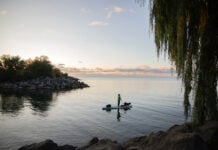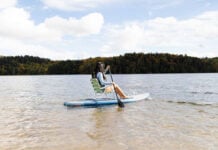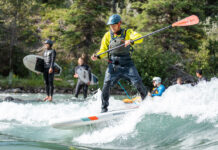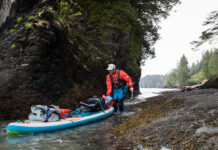Dreaming of bringing a surfable wave to your local river? Neil Egsgard and Surf Anywhere have the expertise to help make it happen.
Surf Anywhere is building dream waves around the world
In 2007, Egsgard started Surf Anywhere, a Calgary-based company that builds river waves worldwide. At the time, he’d only been river surfing for two years, since seeing somebody riding the 10th Street Wave on the Bow River in downtown Calgary and borrowing a board. Upon mastering the balance required to stand and carve, Egsgard gravitated west to the Kananaskis River in the Rocky Mountains.
That’s where Surf Anywhere took on its first project, attempting to reengineer a flat stretch of the waterway to produce a wave. Although the dam controlled Kananaskis is relatively easy to work on because heavy machinery can drive onto the riverbed at low flow, things didn’t work out as planned. The rocks used to make a wave weren’t placed in the right positions.
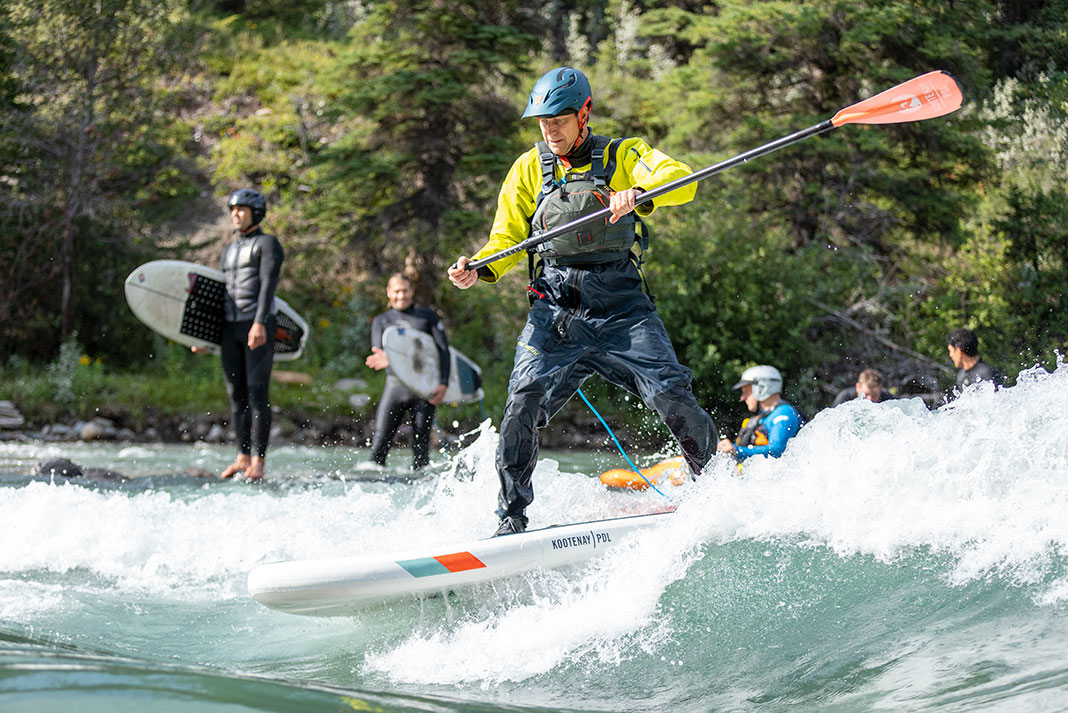
That experience taught Egsgard a crucial lesson: you must control design and construction. Surf Anywhere returned to the Kananaskis in 2013 and, during a springtime blizzard, built a new wave modeled after one on Munich’s Eisbach in Germany, the birthplace of river surfing. Attempt two was successful. Since then, the company has completed about a dozen significant projects in Canada, the U.S. and Europe, providing a range of services, from wave R&D to managing the permitting process, and safety advocacy to community development. Making waves is the most visible part of the business but other efforts produce important grassroots swell.
Working hand-in-paddle with local communities
Surf Anywhere consults with local surfing and paddling groups, helping them organize and understand the steps required to create manufactured water features in their own communities. It also maintains a river surfing accident and incident database, so people understand risks like leash entrapment and the need for proper gear.
On the R&D side, the company knows how to direct the heavy lifting and partners with hydrologists to create a public body of knowledge.
“Our research is open source,” says Egsgard, referencing a recent collaboration with the University of Ottawa leading to months of lab work, testing various adjustable kicker systems to see how to make desirable waves. “It can be freely used anywhere. We’ve shown that with a simple structure, with very few moving parts, you can create excellent surf and kayak waves.”
Manufactured waves bring multiple benefits
Most wave builds are tacked onto existing projects, such as the removal of low head dams or waterpark improvements. These projects must adhere to strict environmental regulations and can lead to shoreline or habitat enhancement, which is expensive to fund on its own. And, once finished, waves are almost always free to ride and bring economic benefits to an area; surfers and paddlers buy food and gas and maybe spend a few nights at a hotel.
Whereas mechanical wave parks require power to run and put money into the pockets of owners and investors, says Egsgard, river waves rely on natural flow and bring people to aquatic environments.
“It connects you to the water you care about,” Egsgard says.
A river SUP enthusiast on Mountain Wave on the Kananaskis River. | Feature photo: Tyler Toohey



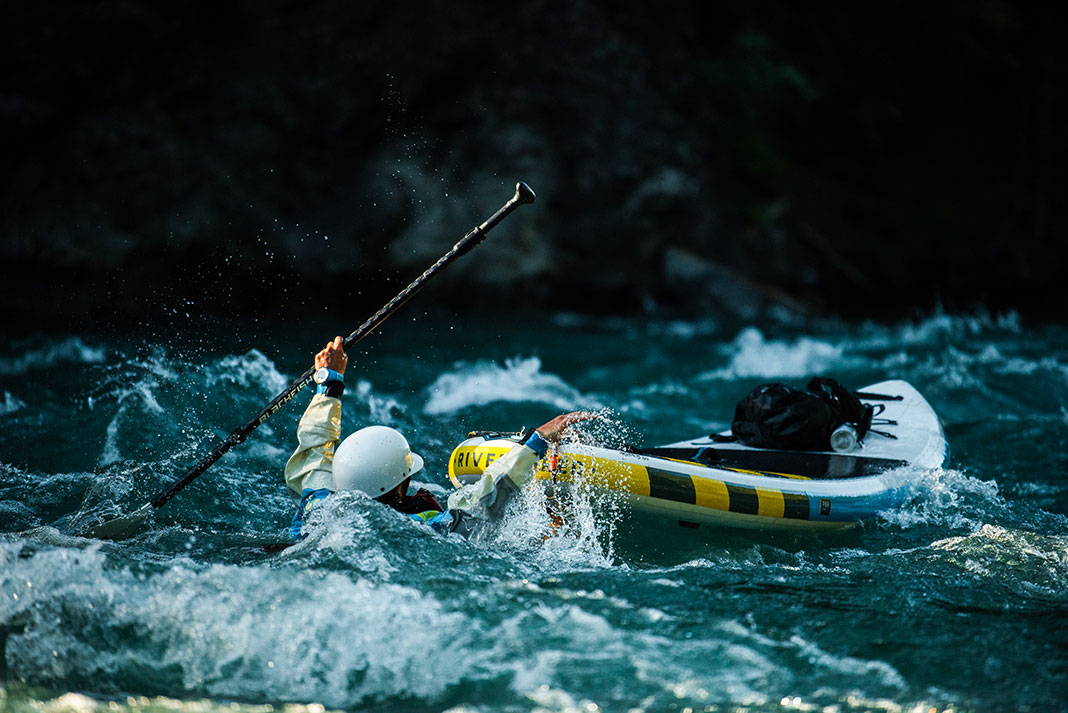
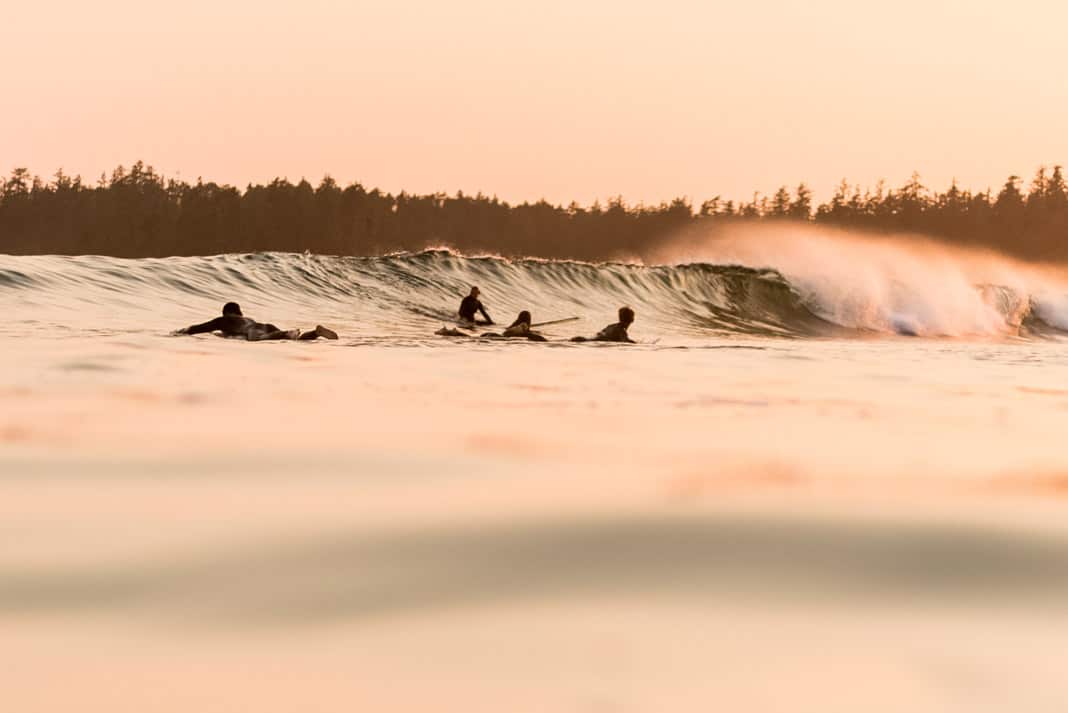
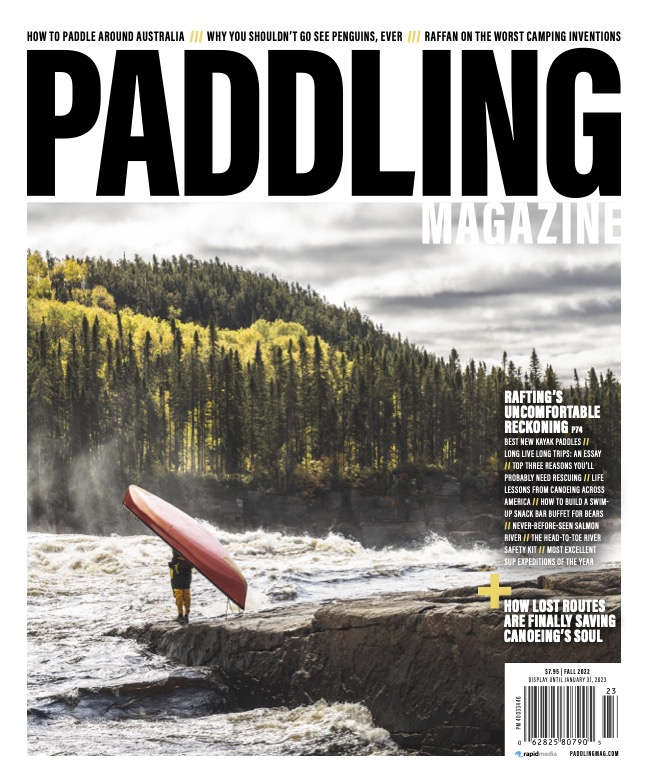 This article was first published in the Fall 2022 issue of Paddling Magazine.
This article was first published in the Fall 2022 issue of Paddling Magazine. 
